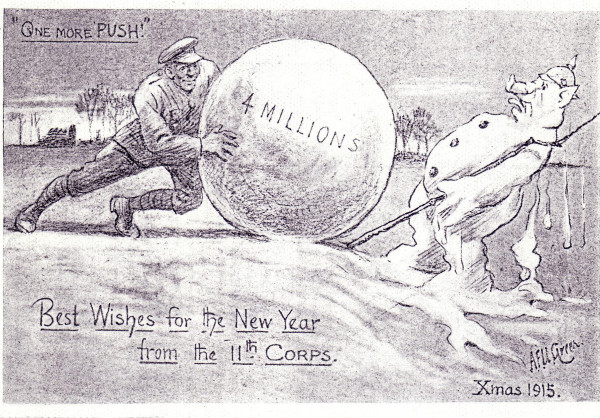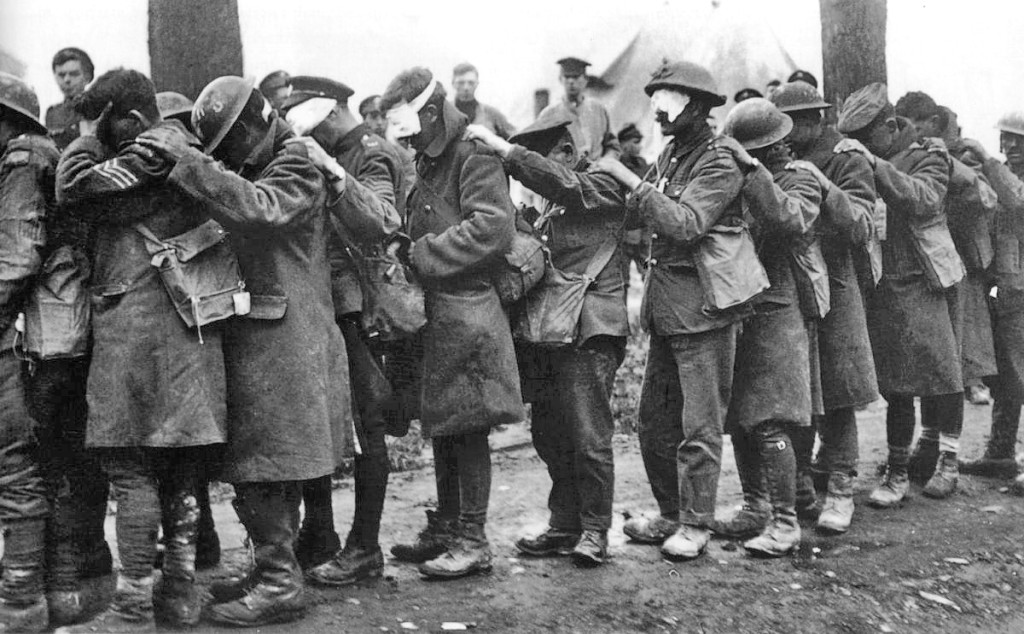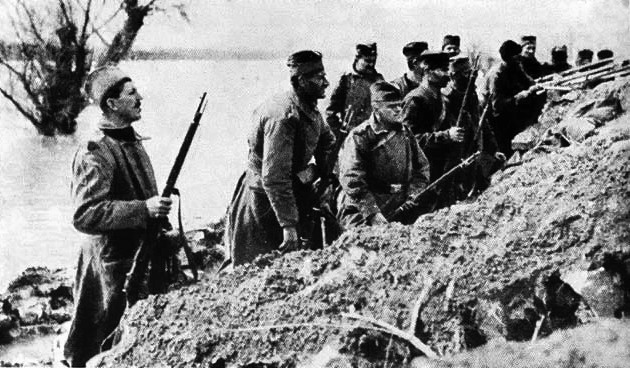GLENDALE NOTES
BRITISH LEGION MEETING
The initial meeting of the British Legion since becoming members of this great body was held on Monday evening last. Comrade Cowans, in the unavoidable absence of Canon Moran, presided. The attendance was very disappointing, but it is hoped, now that the laying of the bowling green has commenced, this may be the means of stimulating the enthusiasm. It is expected, if money is in the funds after the green is finished, a club-house will also be erected. So far there has not been anything but the monthly meeting. The first business was making final arrangements for Armistice Day.

A brief service will be held on Tower Hill. The ministers of the various churches in the town will take part; also the members of the Parish Council will be present. It is hoped that all ex-Service men will endeavour to be present, as the service will be a short duration. The Wooler Branch of the Legion will lay a laurel wreath on the memorial in remembrance of the great sacrifice of their comrades. Poppies, which have been made in the devastated areas, will be sold in the town, commencing an hour before the service. The Secretary gave a report of the bowling green, and explained that all the unemployed ex-service men in the town had been taken on. He also explained that there was seventy fully paid up members. He was pleased to report that a few intricate cases had been dealt with by him and all were proceeding satisfactorily. He would like to draw the members’ attention to a certain thing which was going on, and asked for their support in the matter. Many of the ex-Service men had held aloof from the branch, but now that they need assistance they were coming with their subscriptions in one hand and their cases in the other. It was not the game, and he wanted them all to help to blot it out. It was decided to have a reunion of ex-Service men, and after considerable discussion it was agreed to hold it when the bowling green was opened. Votes of thank concluded the meeting.
NORHAM AND ISLANDSHIRE
RURAL DISTRICT COUNCIL
A CRIPPLE GETS SIX MONTHS’ FOR BIGAMY
Three aged people figured in a case at the Newcastle Assizes on Monday, when William Henry Usher, 60, miner, pleaded guilty to a charge of having committed bigamy with Dinah Oliver of Embleton, at Rothbury in November, 1918, his former wife being then alive.
Mr C. B. Fenwick who prosecuted, said the facts of the case were most unusual, because of the age of the parties concerned. The first marriage took place so far back as 1886, being contracted at the Durham Registry Office. Accused and his wife lived together until 1915, when she left him on account of his temper. They were then living near Amble. Sometime later, in 1917 he made the acquaintance of the second “wife,” a widow of the same age. They were married in November of that year at Rothbury, he representing himself as a widower. In the spring of 1921 she heard something which aroused her suspicious and she taxed him with being a married man. He thereupon packed up his clothes and left her.
Prisoner handed in a statement to his Lordship, who expressed a wish to hear something about his character.
P.C. John Edward Hogg said he had known the prisoner for about three years and apart from occasionally getting too much drink he seemed to have lived a quiet life. He was a cripple. Witness added that in documents which he had prisoner stated he was formerly in the Army.
His Lordship – Do you know that to be true?
Witness – He told me that, but I cannot vouch for the truth of it. It might be so, and he says he was discharge with the rank of sergeant-major.
Mr Fenwick – it is very probable that his first wife may be able to tell us that.
Sarah Usher said prisoner had been a soldier and had been out in India about seven years. He left the Army when she married him. She thought his rank then was sergeant. She did not always live with him at Amble and witness stated that she lft him in 1915 because of his drunken habits.
His Lordship – Do you know whether his discharge papers from the Army were good or bad?
Witness – I think they were good.
How did he come to be a cripple? – I think he had an accident in the mine.
Dinah Oliver, who left Usher in 1920, going to live with her son at Scremerston, was then called, and she stated that when she “married” prisoner he stated he was a widower. He said he had been a widower for four years. She left him on one occasion and they differed over several things Witness added that she was afraid of him.
His Lordship said it was a very serious offence, but he was willing to have some regard to the fact that he was a man of some years of age, that he was a cripple, and that he appeared to have had a good record in the Army. Fortunately there were no children of his second “marriage” to bear the shame.
Prisoner was sentenced to six months’ imprisonment.
LOCAL NEWS
The fashion of sending Christmas cards is still popular, and from samples submitted to us by Messrs Raphael Tuck and Sons, there will be a wider selection than ever from which to choose this season. Even the most fastidious in artistic taste cannot fail to find something that will appeal in the 3000 designs which this well-known firm has to offer. Cards that delight the children have always been a feature of Raphael House and this season’s designs are as fascinating as ever. Very dainty are the “Pot Pourri” series with their deliciously fragrant perfume. The silhouette mascot cards will be popular with these who pin their faith to the black cat as a symbol of luck.
There has surely never been anything more artistic produced than the beautiful garden scenes chosen by Queen Alexandra and Princess Mary this year for their cards. Queen Mary, King George and Prince of Wales have chosen historic scenes which are equally delightful. It is perhaps not generally known that these royal cards, which are reproduced for the use of the public. Great taste is exhibited in the greetings or quotations which all the cards bear. It is not only Christmas cards they have to offer. There is an equally wide selection of post-cards and calendars to choose from, and gift books, toy books and painting books galore to delight the hearts of the children. There are charming editions of Hans Anderson, of the equally popular Grimm, or of “Alice in Wonderland,” illustrated in a fascinating manner by Mabel Lucie Attwell. These are interesting stories of animals, birds, insects, that instruct as well as amuse; lesson books that make the learning of the alphabet a joy, or sets of picture building blocks to while away happy hours in the nursery. No better selection of goods has ever been issued from the studios of Raphael House.
Saturday evening was Guy Fawkes night and the youngsters in the town celebrated the occasion with bonfires and fireworks display. Some ingenuity was shown this year with Guys, and one burned at the stake in the Greens was quite original and up-to-date. Last week a Naval deserter eluded his escort at Berwick Station and hid in a passage in the Greens. His whereabouts was given away to the escort by a Greens resident and he was duly captured. To show their contempt of the informer, the youngsters burned his effigy.
In a discussion on rat extermination by the members of the Northumberland Agricultural Committee a motion that it was desirable that the Rats and Mice Destruction Act 1919 be repealed was defeated by 15 votes to 3, the view being expressed that the Act should be retained as the rat was one of the greatest destructive pests in the country. It was argued in support of the motion that rat-killing was a waste of public money and that the farmer who allowed the rats to accumulate should bear the expense of their destruction and nobody else. No fewer than 35,000 rodents had been killed in six months at 180 places, and it was stated the estimated cost for the year was between £800 and £600.







